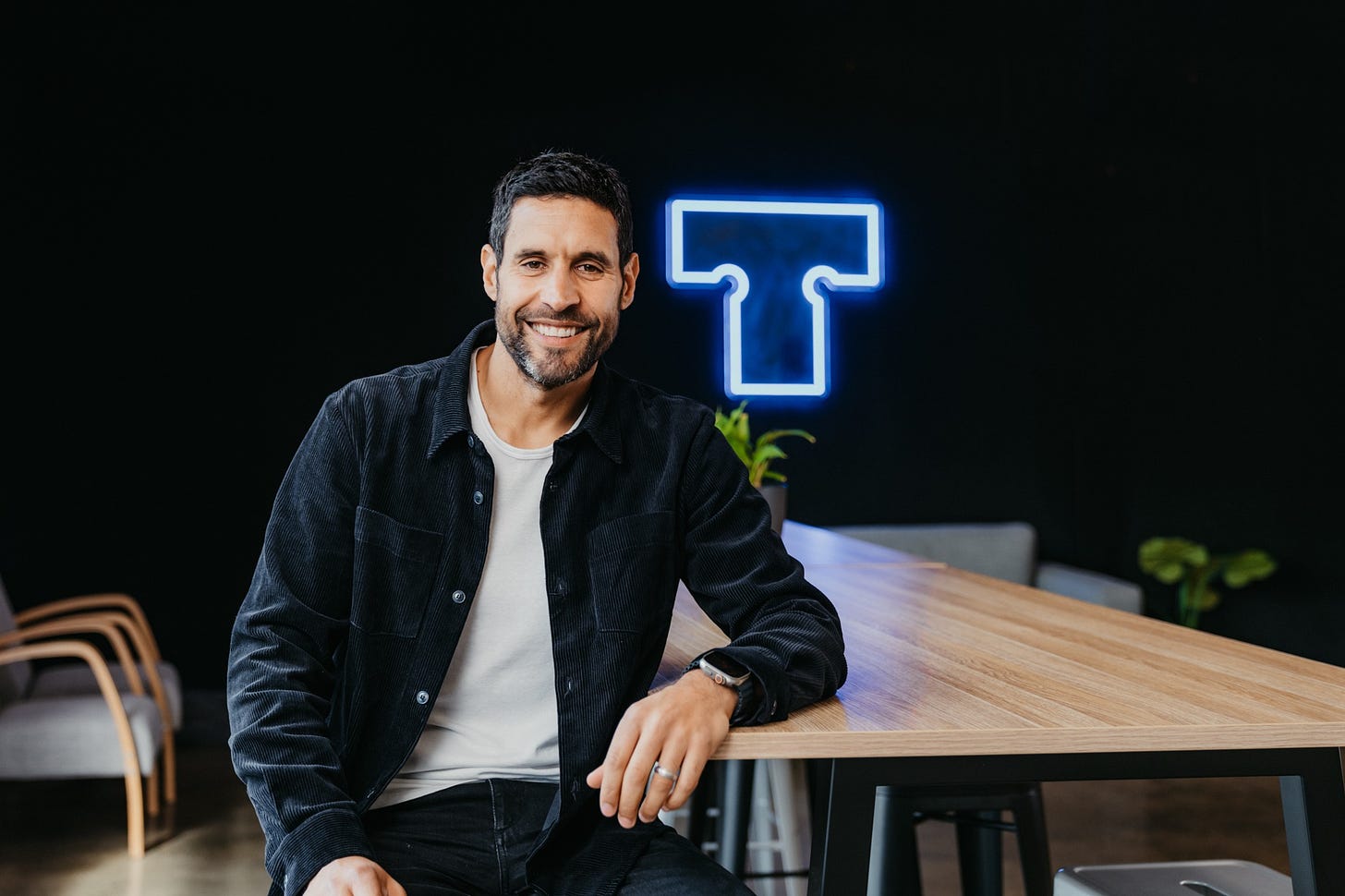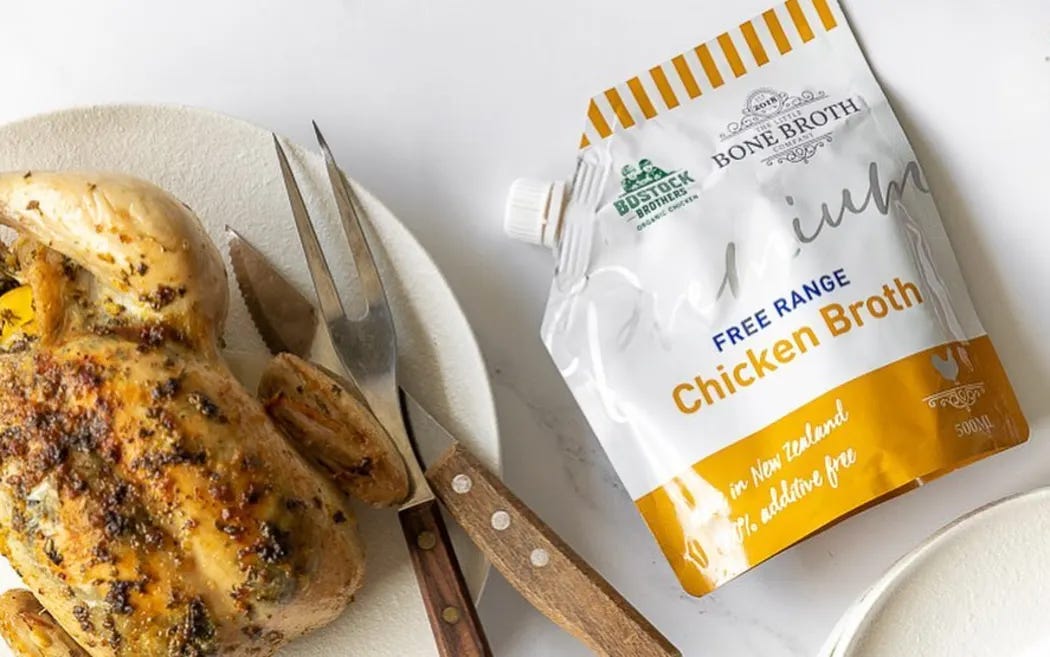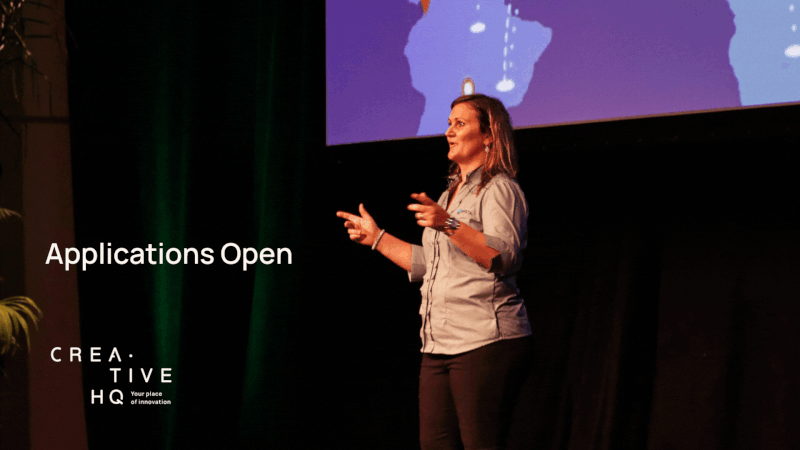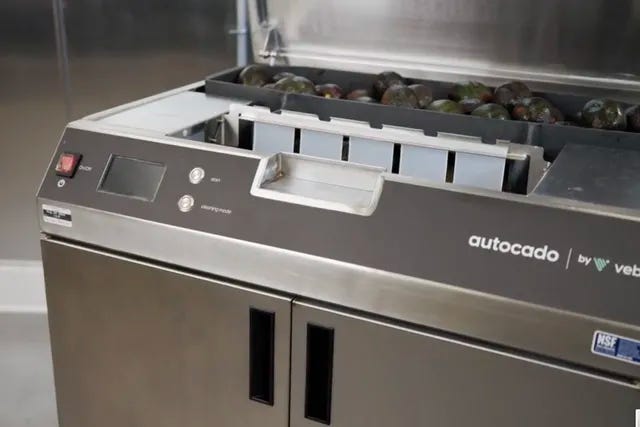Access Group looks to acquire Tradify
News from the New Zealand startup ecosystem, straight to your inbox thanks to today's Presenting Partner, Vanta.
Good morning Caffeinators!
Happy Wednesday and welcome to your hump day newsletter. This morning we’re kicking off with some huge acquisition news at the top of our Daily Shot.
For a longer read, we have a new column from regular contributor Serge who has returned to tell you that like it or not, you’re a reject - and that’s a good thing.
Plus our partner Vanta is offering the Caffeine community $1k off their trusted compliance and security platform. Click here or see more below.
As usual, thank you to all our premium subscribers for keeping our lights on and to everyone who has taken the time to get in touch with feedback.
We love hearing from you so don’t be afraid to let us know what you want to see from Caffeine in the weeks to come. We’re just getting started.
Finn & the Caffeine team
Access Group looks to acquire Tradify: Huge acquisition hot off the press this morning with UK-based business management software provider Access Group entering an agreement to scoop up Tradify. While the numbers aren’t public, the fact it is awaiting approval by OIO indicates that it will be north of $100m. To give some idea of the scope, Icehouse Ventures CEO Robbie Paul says “This acquisition would singularly pay off the majority of the $11m 2016 Seed Fund, a 30 company portfolio,” Read more from Chris Keall at NZ Herald here.
Big raise for Little Bone: The Christchurch-based bone broth company founded by husband and wife duo Alex and Catherine Watson has launched a $1.5m capital raise for 30% equity as it looks to scale up. With only two full time staff including Watson, the company looks to hire two to three more full-timers in the next 12 to 24 months. Kate McVicar has a nice wrap on NBR here.
🚀 Applications Open for Fintech Lab 2025! 🚀: If you're ready to take your product or idea to the next level, Creative HQ's Fintech Lab 2025 is for you. Here's what you can expect:
🔸 Hands-on support to build a stable foundation for your business.
🔸 Connect with key ecosystem players, including investors and regulators.
🔸 Learn essential startup skills like pitching, marketing, hiring, and cashflow management.
🔸 Free publicity and the chance to present at Sunrise Aotearoa this November.
🔸 Showcase your work at the 2025 Fintech Lab presentation.Designed to fast-track your progress by a year within 3 months, this programme has supported successful startups like Sharesies and Hnry. Could you be next? 💥 More info and apply here.
Scribbles from the Startup Frontlines | Serge van Dam is an early stage startup investor, focused on going-global productivity software (SaaS) companies. He spends much of his time with a bayonet in hand yelling “now” in the startup trenches.
Rejects Everywhere
TLDR: You may or may not have always been one, but you are a reject now. Great. Get used to it.
The Case for Misery
Depressing as it might sound, my favourite feeling in the world is after a hard day’s tramping in the Tararua ranges - where the wind and terrain and the weight of your pack are against you - is ending up in a hut, where you can make yourself a cup of tea, on your terms. And the tea - with two sugars in my case!!! - tastes delicious.
Much of the journey of a founder and a startup mirrors that. Many steps on the journey are layered with some form of misery, even if the occasional wins bring a deranged form of delight (less misery!). And much of the misery comes in the form of rejection.
Many Forms of Rejection
As social mammals, we are somehow programmed to fear rejection, even if the real world costs of it are insignificant. I remember how many times I rang and hung up the phone trying to invite a love interest to my third-form disco. Total paralysis. The cause; fear of rejection (I got chicken pox, so never ended up going. Devastating for Sian, I am sure!).
In a startup journey, rejection lurks everywhere:
Most painfully and most evidently, in seeking investment. EVERY founder knows how hard it is to convince people you are a bet worth making, and how many people will say NO, even to the best companies. Melanie Perkins from Canva was formally rejected over 100 times before anyone invested in her phenomenon of a company. It always feels personal: “what is it about me and my company that people don’t seem to like?”
Getting professionals to join your crazy circus is not easy either. Some founders default to approaching mediocre people they think will say “yes” rather than who they think is best suited to their world-changing idea. Why? Fear that their rocket ship is not one they should get into.
Customers - or more accurately, prospects - will say no. Almost no one wants what you have. If you are lucky, they might go to your website to check you out. Even then, over 99% of people who show some interest will close their browser window without feedback or even a polite goodbye. Ditto if you have a physical retail store or similar. Most prospects are disinterested.
Potential partners behave in the same way. Worse still, many of those will waste months of your time, and steal your IP, before ignoring you. Theirs is the worst form of rejection - they often should know better, but don’t. Meanwhile, you sit sadly by the phone…
In the ‘miscellaneous’ category are a plethora of other rejectors. Everyone is waiting their turn to reject you. It could be conference organisers who think your proposition makes no sense, media companies who feel your category is not novel (and your story dull), Government agencies, bankers, and so on.
I could go on….
Mindset as the Antidote
Perennial rejection can and does wear out those founding and leading startups. Good!
That’s what Navy SEAL Jocko Willink would tell you. In his book “Extreme Ownership”, he articulates the role of mindset in both attempting and achieving missions that are ‘against all odds’. And that’s what startups are; an adventurous game at which you are not supposed to win.
If you are interested in the statistics, failing is the most likely outcome.
It’s even harder than that. No one will tell you, but almost everyone wants you to fail too. Why? Because you represent change, and change they did not ask for. Startup founders and leadership teams invent a future (almost) no one has thought about or actually wants.
The best way out of this trench of despair is to reframe rejection. It is what you should expect. It is a rite of passage to succeeding in your mission. You must change the way you react to and reflect on the rejection you suffer.
This rejection is also good for you.
Every rejection delivers a learning opportunity. Is a feature missing in your product? Is your value proposition emotive enough? Are you targeting the best possible market? Did you think deeply about the best investors for your company?
You WILL develop a thicker skin and become more resilient. Beyond your startup, that is good for your personal relationships and the shit life will without-doubt throw your way in the years ahead.
And in due course, it will increase your conviction that you and your startup are changing the world for good.
Get used to it. You are a reject. Good!
Diaspora Podcast: Rhys Darby and Rosie Carnahan-Darby on championing Kiwi humour around the world, Tall Poppy syndrome, and losing creative jobs to AI.
He’s been Murray Hewitt, Psycho Sam, Norman from Yes Man, Guy Mann, Hypno-Potamus, a stand-up comedian, a sit-down band manager, a children’s book author, a soldier… and now Binkle-bonk the Tree Goblin in upcoming “Badjelly the Witch” 🤩
In this week’s Diaspora pod, legendary Kiwi comedian Rhys Darby joins us - live from L.A - to talk through his rise from Canterbury to Edinburgh to Hollywood in a career that’s seen him star in multiple comedy specials, voice over countless animated shows and co-star with everyone from Jim Carrey to Dwayne ‘The Rock’ Johnson.
Rhys hasn’t made the journey alone: also joining us is his incredible wife & long-time manager, Rosie Carnahan Darby, who talks about her career in entertainment management, production, writing comedy, how comedians can get ahead, how entertainers can be devastated by changes in AI and tech… and shares the creative projects of their two sons in this very funny family. Listen here
We’re really proud to partner with Vanta because they offer something game-changing for founders: a faster, smarter way to tackle compliance. Whether it’s SOC 2, ISO 27001, or other standards, Vanta automates the process, getting you audit-ready in no time and saving you up to 85% of the costs. Plus, it helps build the trust that your customers value. To support the NZ startup community, Vanta is offering $1,000 off—just click here to claim it. We're all about solutions that make life easier for founders, and this is definitely one of them. If you’d like to know more, here’s a webinar they’re hosting next month.
SAVE THE DATE: VANTA WEBINAR
Unveiling the Future of GRC Roadmap
Date: Wednesday 16 October
Time: 12 pm NZDT
SIGN UP HERE
Looking to future-proof your GRC programme? Join Vanta on Wednesday, October 16th at 10 am AEDT / 12 pm NZDT for What’s New in Vanta: Unveiling the Future of GRC Roadmap. In this exclusive webinar, Vanta’s CPO, Jeremy Epling, will showcase the latest product updates and roadmap insights designed to help security teams scale more effectively. Whether you're growing your GRC strategy or staying ahead in compliance, this is the session for you.
Meet the ‘Autocado’: The wave of automation is not stopping and now it has come for our avocados. The Chipotle fast food chain is deploying an AI powered robot which can cut, core and peel an avocado in an average of 26 seconds. To be honest, considering avocado related injuries are so common they cost NZ taxpayers $3.3m in the past five years, I think we have shown humans cannot be trusted to these things.
That’s it for today, thanks for reading. Want to get in touch with a news tip, bit of feedback or just to chat? Email hello@caffeinedaily.co. Look after yourselves and each other and we’ll see you tomorrow.















